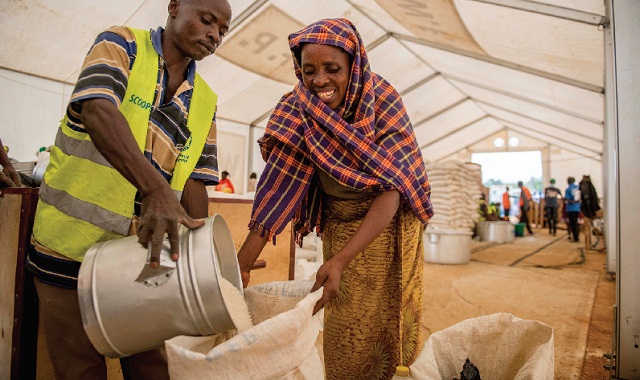
Nairobi, Kenya | Xinhua | The World Food Programme (WFP) said Tuesday it requires 473 million U.S. dollars to scale up humanitarian assistance and save lives in Ethiopia, Kenya and Somalia over the next six months.
WFP said in a statement issued in Nairobi, the capital of Kenya, that greatly needed rains across the eastern Africa region have so far failed to materialize, almost a month into the current rainy season.
It warned that if these conditions continue, along with stagnant and even decreasing humanitarian aid, the number of hungry people due to drought could spiral from the currently estimated 14 million to 20 million through 2022.
“We know from past experience that acting early to avert a humanitarian catastrophe is vital, yet our ability to launch the response has been limited due to a lack of funding to date,” said Michael Dunford, WFP’s Regional Director for Eastern Africa.
According to WFP, the situation has been compounded by the fallout of the conflict in Ukraine, with the cost of food and fuel soaring to unprecedented highs. And shipping costs on some routes have doubled since January.
It said drought-affected countries across eastern Africa are likely to be the hardest hit by the impacts of the conflict – the cost of a food basket has already risen, particularly in Ethiopia (66 percent) and Somalia (36 percent) which depends heavily on wheat from Black Sea basin countries, and the disruption in imports further threatens food security.
The UN agency said time is fast running out for families who are struggling to survive with Somalia facing the risk of famine, half a million Kenyans one step away from catastrophic levels of hunger and malnutrition rates in Ethiopia well above emergency thresholds.
It said catastrophe was avoided through early action during the 2016/17 drought in the Horn of Africa, adding that humanitarian assistance was scaled up before there was widespread hunger.
“In 2022, due to a severe lack of resourcing, there are growing fears that it won’t be possible to prevent the looming disaster, and millions will suffer as a result,” WFP warned.
*****
Xinhua
 The Independent Uganda: You get the Truth we Pay the Price
The Independent Uganda: You get the Truth we Pay the Price


